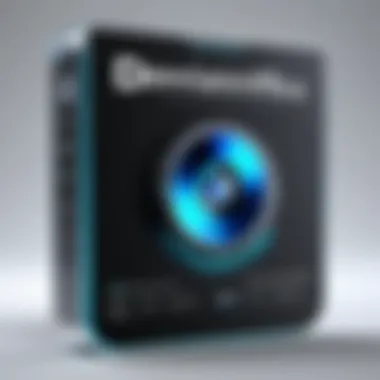Mastering Music Downloads for Your MP3 Player


Intro
With the evolution of technology, music consumption has become easier than ever. Today, MP3 players remain a popular choice among those who appreciate high-quality audio on the go. Despite the rise of streaming services, many users still prefer downloading music directly onto their devices. This process not only offers convenience but also allows for offline listening and personal collection management.
In this guide, we will explore the intricate process of downloading music to an MP3 player. From understanding the various methods to ensuring legal compliance with copyright laws, this will serve as a valuable resource for users looking to enhance their listening experience. Topics will include essential software, practical step-by-step instructions, and a look at various tools available. By the end of this article, readers will be equipped to navigate the world of music downloads efficiently and responsibly.
Understanding MP3 Players
Understanding MP3 players is essential for anyone looking to download music and enjoy it on-the-go. These devices have made significant advancements over time, led to changes in how we consume music. Knowing the different types, capabilities, and limitations of MP3 players allows users to choose the right device that fits their needs.
Benefits of Understanding MP3 Players
- Better User Experience: Familiarity with the functionalities enables smoother usage.
- Informed Purchasing Decisions: Knowledge about different models assists in making smart buying choices.
- Ease of Downloading: Understanding how these players work helps in the downloading process.
Types of MP3 Players
There are several types of MP3 players available in the market today. Each type has its features tailored for different user preferences.
- Flash MP3 Players: These are compact, lightweight, and have no moving parts. They often come with storage ranging from a few gigabytes to around 64GB.
- Hard Drive MP3 Players: Larger in size, these players can hold a significant amount of music. They are ideal for those who want to carry extensive music libraries but tend to be bulkier and less durable.
- Portable Media Players: These devices are more than just audio players. They can play video files and sometimes connect to Wi-Fi for streaming. They offer versatile functionality but may be more expensive.
Being aware of these types helps to determine which suits your lifestyle best.
Key Features to Consider
When selecting an MP3 player, certain features are crucial for enhancing the overall experience.
- Storage Capacity: This varies between models and influences how much music you can store. Opt for a player with adequate space for your music library.
- Battery Life: Look for long battery life to avoid frequent recharging. Modern players can last for several hours on a full charge.
- Sound Quality: Various players offer different audio outputs. If audio quality is important, it might be wise to read reviews and compare specifications.
- User Interface: A simple and intuitive interface makes navigating through music libraries easier. Adequate screen size can also improve accessibility.
In the world of digital music, having the right MP3 player can significantly enhance your enjoyment and convenience.
Recognizing these features can ultimately lead to a satisfying music experience. Choosing a player that aligns well with personal preferences is invaluable.
Legal Considerations
When downloading music to an MP3 player, legal considerations play a crucial role. Understanding these regulations protects you from potential legal repercussions while also respecting the rights of artists and creators. This section delves into two main areas: Copyright Regulations and Public Domain vs. Licensed Music, providing clarity on what is permissible in the realm of music downloading.
Copyright Regulations
Copyright laws are designed to safeguard the intellectual property of creators. In many countries, simply downloading music without permission can lead to legal consequences. In essence, artists maintain rights to their creations, which means that every time a song is downloaded or shared without approval, it violates these authors' rights. Here are some key points concerning copyright regulations:
- File Sharing: Engaging in the unauthorized sharing of copyrighted music can result in legal action.
- Personal Use vs. Distribution: While personal use often ranges in a grey area, distributing music, even for free, can breach copyright laws.
- DMCA Take-Down Notices: Under the Digital Millennium Copyright Act, rights holders can send take-down notices to enforce their copyrights, forcing websites to remove unauthorized content.
Understanding these regulations is crucial as it sets the framework for how to navigate music downloads safely. By remaining within legal boundaries, oyou can enjoy your music without fear of litigation or fines.
Public Domain vs. Licensed Music
Another vital concept in music downloading is the distinction between public domain music and licensed music. This differentiation affects what you can download freely and what requires permission.
- Public Domain Music: Works that are in the public domain are no longer protected by copyright laws. Therefore, downloading and sharing this music is legal and encouraged. Examples include classical compositions by Beethoven or Mozart, which have long been in the public domain.
- Licensed Music: On the other hand, licensed music requires permissions or agreements before being downloaded. This music often requires you to pay fees or abide by specific usage guidelines. Many modern artists release their music under various licenses, and understanding these licenses is essential in determining how you can legally use the music after download.
Necessary Tools and Software
Downloading music to your MP3 player necessitates the use of specific tools and software that facilitate seamless access and transfer of audio files. With a plethora of options available, selecting the best tools can profoundly affect the quality and efficiency of your music downloading experience. Users should consider the compatibility of these tools with their devices, ease of use, and the range of features they offer. A well-selected suite of software not only simplifies the process but also ensures your music library remains organized and accessible.


Media Management Software
Media management software is crucial for anyone looking to download music efficiently. It helps in organizing your music collection and ensures that all tracks are tagged correctly, making it easier to locate your favorites. Programs like iTunes or Windows Media Player facilitate the import, export, and management of audio files. They allow users to create playlists, sort music by genre, artist, or album, and maintain an updated library.
Using media management software can also provide enhanced metadata features. Good metadata includes information about the artist, album, and year, which aides in streamlining your listening experience. This way, when you transfer your music to an MP3 player, you can rest assured that everything is organized and easy to navigate.
Downloading Applications
Downloading applications are another important component in acquiring music for your MP3 player. Various programs and apps specialize in sourcing music from the internet. Examples of such applications include frostwire or aTube Catcher. These applications can connect directly to music streaming platforms and download tracks legally if allowed by copyright regulations.
When selecting a downloading application, it’s important to evaluate the interface. A user-friendly experience is essential, especially for those less technically inclined. Look for applications that provide clear instructions and have good user reviews. Additionally, ensure that they can handle different audio formats.
File Conversion Tools
File conversion tools are indispensable for ensuring your downloaded music files are in a compatible format for playback on your MP3 player. Many audio files available online may be in formats like FLAC or WAV, which some MP3 players do not support. Programs such as Audacity or Switch Audio File Converter can convert these files into MP3 format.
The conversion process should maintain sound quality while changing the file type. Many conversion tools allow you to adjust settings such as bit rate and sample rate. This flexibility enables you to decide between quality and file size. Deciding the appropriate settings according to your preferences is essential for a satisfying audio experience. Ultimately, using file conversion tools can maximize compatibility across your devices.
Sources for Free Music Downloads
In today's digital era, the availability of music is vast, yet not all sources are created equal. Understanding the different avenues for free music downloads is crucial for anyone looking to build a personal library while adhering to copyright regulations. This section elucidates the importance of varied sources and highlights the advantages they offer.
Utilizing reliable platforms ensures that users can access a rich selection of music without the pitfalls of piracy. Each source type comes with specific benefits and considerations, influencing how effectively one can gather music.
Online Music Libraries
Online music libraries are a cornerstone for music enthusiasts seeking free tracks. These platforms host extensive catalogs for users to explore. Notable examples include the Internet Archive and Free Music Archive.
Advantages of Online Music Libraries:
- Variety: Users find a broad array of genres, helping them discover new artists.
- Quality: Many libraries offer music in high-quality formats.
- Legal Assurance: Most tracks are free from copyright disputes, ensuring peace of mind when downloading music.
However, limitations may exist. Some may require registration which can be a minor hurdle.
Creative Commons Platforms
Creative Commons platforms provide a unique approach to music distribution. These spaces allow creators to license their music under conditions that promote free use and sharing. Notable platforms include SoundCloud and ccMixter.
Benefits of Creative Commons Platforms:
- User Engagement: Interact with artists directly; many are responsive to feedback.
- Diverse Offerings: Explore remixes and adaptations freely.
- Flexible Licensing: Adapt music for personal projects, given that proper attribution is provided.
Nonetheless, it is vital to read license terms carefully to ensure compliance with usage rights.
Official Artist Websites
Many artists offer free downloads directly from their official websites. It’s common for independent musicians to share tracks or EPs in this way, fostering a direct connection with fans. Using this method supports artists directly, allowing them to maintain creative control.
Merits of Official Artist Websites:
- Exclusive Content: Access to rare tracks that may not be found on larger platforms.
- Support for Artists: Trailing a direct path to support the music creators, often leading to exclusive updates and content.
- Legitimacy: Downloads are legal and sanctioned by the artist, which minimizes potential copyright issues.
Step-by-Step Downloading Process
Understanding the Step-by-Step Downloading Process is critical for anyone looking to transfer music to their MP3 player. Without a structured approach, the task can seem daunting. This process not only facilitates the efficient acquisition of music but also ensures that the user adheres to relevant legal standards. A clear understanding of each segment helps in minimizing frustrations encountered during this often-technical endeavor.


Searching for Music
Searching for music is the first step in building your MP3 library. There is an abundance of sources online, but not all are safe or legal. It is important to focus on reputable platforms. Here are some effective strategies to enhance your search:
- Use specific keywords in your search. Phrasing such as song title and artist can yield better results.
- Explore dedicated sites like Bandcamp or SoundCloud, which often feature independent artists.
- Utilize music discovery services, which can provide recommendations based on your preferences.
Watch out for unreliable sites that may promote pirated music or malware-infested downloads. This will save time and protect your devices.
Using Download Software Effectively
Once you find the music you want, the next step involves choosing the right download software. This software can simplify the process while ensuring a smoother experience. Here are some tips for effective use:
- Always opt for well-reviewed applications, like iTunes for Apple devices or Windows Media Player for Windows users. These tools are designed to facilitate easy downloads and transfers.
- Familiarize yourself with the software's functionality. Ensure you understand how to navigate its features, especially those related to music libraries and transfer options.
- Pay attention to settings. Adjusting formats and quality settings can impact how your music downloads. When available, choose a high-quality setting to enjoy optimal sound.
Using the right application can substantially reduce the time to download and transfer music, enhancing your overall experience.
Transferring Music to MP3 Player
The final step involves transferring the downloaded music to your MP3 player. This can vary based on the type of device and the software used. To manage this effectively, consider these approaches:
- Connect your MP3 player to your computer using the USB cable. Ensure that your device is powered on.
- Open your media management software. This will typically recognize your connected MP3 player.
- Drag and drop files directly into the MP3 player's designated folder. Alternatively, use the sync feature in the software, which automatically transfers selected files.
- Once the transfer is complete, safely eject your MP3 player before disconnecting it to prevent data loss.
Being organized on this final step ensures that you can enjoy your music seamlessly while also maintaining your device’s integrity.
Managing Your Music Library
Managing your music library is a critical aspect of maximizing the potential of your MP3 player. A well-organized library not only enhances the listening experience, but it also saves time when searching for specific tracks or artists. It facilitates easy playback and management of your favorite songs. Moreover, effective management can prevent issues that arise from disorganization, such as duplicate files or misplaced albums.
Organizing Music Files
To begin, organizing your music files is the foundation of a well-managed library. It is essential to create a systematic approach to store and categorize your music. You can use genre, artist, album, or even year as categories. Properly labeling files ensures that you can layer album art and metadata effectively, creating a visually appealing and informative library.
Consider the following tips for organizing your music files:
- Use Consistent Naming Conventions: Choose a standard naming style for your files. For example, grouping similar genres or styles together can simplify navigation.
- Maintain Folders: Create folders for artists or genres to avoid confusion. This helps to keep everything in its right place.
- Delete Unnecessary Files: Regularly review your music collection and remove duplicates or tracks that you no longer listen to. This will free storage space and ensure that your library remains streamlined.
By investing time in the organization of files, you lay the groundwork for a pleasant and efficient listening experience.
Creating Playlists
Playlists allow you to tailor specific listening experiences based on mood, activity, or occasion. Creating playlists ensures that you have quick access to your preferred songs without needing to search through your entire library.
Here are some strategies for creating engaging playlists:
- Theme-Based Playlists: Develop playlists around specific themes, such as relaxation, workouts, or road trips. This helps in crafting the ambiance in different situations.
- Curated Collections: Curate playlists with tracks from various genres or artists. This approach introduces diversity and keeps your listening experience fresh.
- Collaborate: Leverage social media platforms like Facebook to share playlists with friends and receive recommendations. Collaborating brings new tracks into your library, further enriching your collection.
As you refine your playlists, remember to consider the flow of songs. A well-structured playlist can change the atmosphere and elevate your mood.
Effective management of your music library can transform your audio experience.
Troubleshooting Common Issues
Understanding how to troubleshoot common issues when downloading music to your MP3 player is essential. Problems can arise at various stages, from the initial download to syncing the files on your device. Recognizing these issues and being familiar with their solutions can save time and frustration, ensuring that you enjoy uninterrupted access to your music.
Synchronization Errors


Synchronization errors can often occur when transferring music from your computer to your MP3 player. These errors can stem from various sources, such as software glitches, incompatible formats, or even a faulty USB cable. When synchronization fails, it can be discouraging, especially if you have spent significant time curating your music selection.
To address these errors, start by checking the connection between the MP3 player and computer. Ensure that the USB cable is securely attached on both ends. If the device is still not recognized, try using a different cable or USB port.
Another common cause of synchronization errors is the media management software being out of date. If you are using software like iTunes or Windows Media Player, update to the latest version. This can improve compatibility and fix bugs that may be causing synchronization issues.
If you continue to encounter problems, consider clearing the cache of the application responsible for the syncing. Additionally, removing any previously corrupted files can help improve the overall functionality. If all else fails, restarting both your computer and your MP3 player can sometimes resolve these issues.
"Staying patient and methodical can often yield better troubleshooting results than frustration."
File Format Compatibility
File format compatibility is another critical area to consider when troubleshooting issues with your MP3 player. Not all file formats are supported by every MP3 player, which means that while you might successfully download music, it may not play on your device.
MP3 players typically support formats such as MP3, AAC, and WAV. If you have downloaded songs in formats like FLAC or WMA, these may not be playable without conversion. To guarantee compatibility, check the user manual of your MP3 player for a comprehensive list of supported formats.
If you discover that your music files are in unsupported formats, you can use file conversion tools to change them to a compatible one. Software options like Freemake Audio Converter or Audacity can help with this process. When using a converter, make sure to maintain quality settings to avoid compromising sound clarity.
Additionally, take note of bitrate limitations since high bitrates might not be supported on some devices. Adjusting the bitrate during the conversion process to match the specifications of your MP3 player can significantly improve compatibility.
Alternatives to MP3 Players
As technology progresses, alternatives to traditional MP3 players have gained significant traction in the music ecosystem. Understanding these alternatives is crucial for individuals seeking modern, versatile ways of enjoying music. Using different platforms offers unique benefits, catering to various preferences and lifestyles. The rise of streaming services and cloud storage options presents an innovative shift in how we access and store music.
Streaming Services
Streaming services have fundamentally changed the way people consume music. Instead of purchasing individual tracks or albums, listeners can access vast libraries of songs for a monthly fee or even for free with ads. Popular platforms such as Spotify, Apple Music, and Amazon Music Unlimited provide users with extensive offerings. Each service has its own set of advantages, making it essential to select one that aligns with personal music tastes and usage habits.
- Access to Extensive Libraries: Streaming services typically offer millions of songs, covering virtually every genre and artist.
- Personalized Playlists: Users can enjoy customized playlists that adapt to listening habits. These algorithims analyze previous plays to suggest new music.
- Offline Listening: Most services allow users to download music for offline use, which can be very handy during commutes or in areas with limited connectivity.
- Multi-device Syncing: Music can be played on various devices seamlessly, allowing for a fluid listening experience.
The convenience and accessibility of these services often outweigh the limitations of building a physical music library. This makes streaming a preferred choice for many music enthusiasts today.
Cloud Storage Solutions
Cloud storage is another modern solution that enhances the music listening experience. By utilizing platforms such as Google Drive, Dropbox, or iCloud, users can store and organize their music collections securely online. This method provides multiple benefits:
- Access from Anywhere: Users can access their music files from any device with an internet connection, easing the worry of lost files or space limitations.
- Cost-Effective: Many cloud services offer substantial free storage options, which can be enough for casual users.
- Automatic Backups: Storing music in the cloud ensures that files are backed up automatically. This reduces the risk of losing precious tracks to hardware failures.
Cloud storage solutions can be particularly attractive for those who have vast music collections or are often on the move. Having music readily available without the physical constraints of MP3 players or other devices is a significant advantage.
"Embracing alternatives to MP3 players can redefine your music experience, providing unique advantages tailored to modern lifestyles."
Finale
The conclusion of this guide is essential as it encapsulates the journey through the complexities of downloading music to MP3 players. This section serves to remind readers of the important points shared throughout the article, reinforcing their understanding and enabling them to apply this knowledge effectively.
Music has become an integral part of our daily lives, with MP3 players serving as one of the most popular mediums for enjoying audio content. Recognizing the legal considerations is paramount, as it not only protects the rights of artists but also ensures that users engage with music responsibly.
Moreover, the tools and software discussed are essential components in this process. Whether it's media management software or file conversion tools, using the right applications can drastically improve the efficiency of downloading and managing music. In the fast-paced world of technology, having access to reliable sources for free music downloads opens up myriad opportunities for users to enhance their libraries without infringing on copyrights.
Recap of Key Points
- Understanding the types and key features of MP3 players helps in selecting the right device for your needs.
- Familiarity with copyright regulations is crucial to avoid legal issues.
- Utilizing appropriate tools such as media management software and downloading applications streamlines the music downloading process.
- Various sources, including online music libraries and Creative Commons platforms, provide ample opportunities for acquiring music legally.
- Steps for managing and organizing music libraries are necessary for ease of access and enjoyment.
Final Thoughts on Music Downloads
Ultimately, music serves as a bridge, connecting listeners to various emotions and memories. Navigating the world of music downloads allows you not just to enjoy this art form but also to appreciate the work that goes into creating it. Being aware of the processes discussed empowers users to make informed choices while enhancing their audio experiences. This guide, therefore, is a step towards not only effective downloading but also a richer understanding of music consumption in the digital age.
"Music brings people together, and downloading it responsibly keeps the rhythm going."
By approaching music downloads with the insight provided in this article, you can navigate this vibrant landscape with both confidence and legal awareness.



